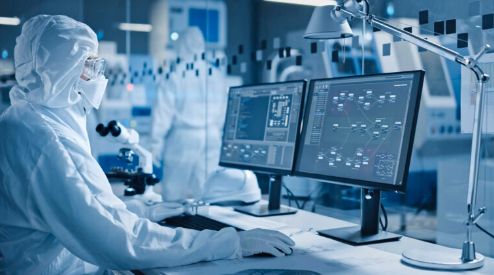In recent years, the pharmaceutical industry has undergone a transformative evolution, driven by rapid advancements in technology. This revolution is not only reshaping how drugs are developed, manufactured, and distributed but also enhancing patient care and optimizing operational efficiencies. As we delve into this transformation, it becomes clear that technology is not just an accessory to the industry; it is the very backbone of its future.
Pioneering Research and Development
One of the most profound impacts of technology in pharmaceuticals is seen in research and development (R&D). The advent of artificial intelligence (AI) and machine learning (ML) has significantly accelerated drug discovery processes. Traditionally, drug development was a lengthy, expensive, and often uncertain endeavor. However, AI algorithms can now analyze vast datasets to identify potential drug candidates faster and more accurately. By predicting how molecules will behave, these technologies help researchers design effective drugs at a fraction of the traditional time and cost.
Moreover, computational biology and bioinformatics have enabled scientists to understand complex biological systems and disease mechanisms, leading to more targeted therapies. These tools provide insights into genetic and molecular data, allowing for the development of personalized medicine tailored to individual patient profiles. As a result, treatments are becoming more precise, reducing side effects and improving patient outcomes.
Enhancing Production Processes
Technology is also revolutionizing pharmaceutical manufacturing. The introduction of automation and robotics is streamlining production lines, ensuring high-quality standards while increasing efficiency. Automated systems can perform repetitive tasks with greater accuracy and speed than human workers, reducing the risk of errors and contamination. This shift not only decreases operational costs but also ensures consistent product quality across batches.
Additionally, advancements in biomanufacturing techniques, such as 3D printing and continuous manufacturing, are enabling more flexible and scalable production. 3D printing, for instance, allows for the creation of complex drug formulations and personalized dosages, paving the way for customized therapies. Continuous manufacturing processes, on the other hand, facilitate real-time quality control, reducing waste and minimizing the need for large inventories.
Streamlining Distribution and Supply Chain
The pharmaceutical supply chain is another area where technology is making a significant impact. With the integration of blockchain technology, the industry is witnessing enhanced transparency and traceability. Blockchain provides a secure, decentralized ledger that records every transaction, ensuring the integrity of the supply chain. This transparency helps in combating counterfeit drugs, a persistent issue that poses serious risks to patient safety.
Moreover, the adoption of Internet of Things (IoT) devices is optimizing logistics and inventory management. IoT sensors can monitor environmental conditions, such as temperature and humidity, during transportation and storage, ensuring that drugs remain within specified parameters. This capability is particularly crucial for biologics and vaccines, which require strict temperature control.
Improving Patient Care with Digital Tools
Perhaps the most visible impact of technology is in patient care. Digital health tools are empowering patients and healthcare providers alike by facilitating better communication and decision-making. Telemedicine platforms, for example, enable remote consultations, making healthcare more accessible and convenient for patients, especially those in underserved areas.
A key player in this digital transformation is eprescribe software, which streamlines the prescribing process. This software allows healthcare providers to send prescriptions directly to pharmacies electronically, reducing the likelihood of errors associated with handwritten prescriptions and improving medication adherence. By ensuring that patients receive the correct medications promptly, eprescribe software enhances the overall quality of care.
Additionally, wearable devices and mobile health apps are providing patients with real-time health data, encouraging proactive health management. These tools offer insights into vital signs, activity levels, and medication adherence, enabling patients to take control of their health outcomes. Healthcare providers can also leverage this data to make informed clinical decisions and provide personalized care.
Conclusion
The pharmaceutical industry stands at the cusp of a technological renaissance that promises to unlock unprecedented possibilities. From accelerating drug discovery and enhancing production efficiency to ensuring supply chain integrity and improving patient care, technology is reshaping every facet of the industry. As these innovations continue to evolve, they hold the potential to not only revolutionize pharmaceuticals but also to profoundly impact global health outcomes. Embracing these advancements will be crucial for the industry to meet the growing demands of a dynamic and ever-changing healthcare landscape.










